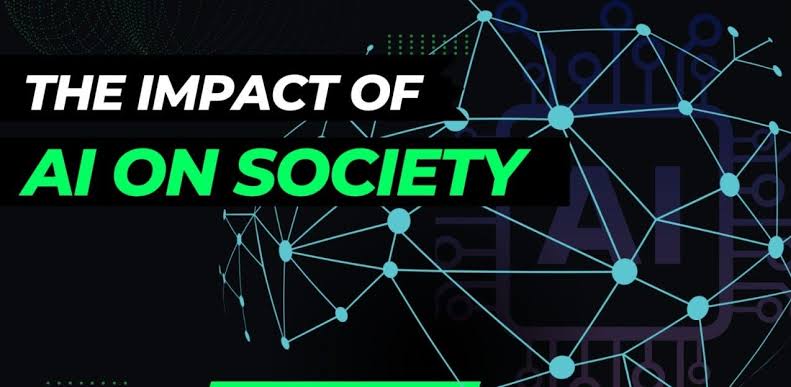Artificial Intelligence (AI) has become integral component of contemporary society. It significantly influences various aspects of daily life. This transformative technology characterized by machines' ability to perform tasks that typically require human intelligence, has sparked considerable debate. People discuss its impact on social structures and interactions. Understanding AI's implications from sociological perspective involves examining how it reshapes societal norms labor markets, social relationships and ethical frameworks.
To appreciate sociological impact of AI it is crucial to understand its development and integration into society. Initially, AI was conceived as theoretical concept. It had potential to mimic human cognition. Over past few decades technological advancements have enabled AI to evolve from rudimentary algorithms to sophisticated systems. These systems are capable of learning and adapting. Today, AI technologies such as machine learning natural language processing and computer vision are embedded in various sectors. These sectors include healthcare, finance education and entertainment.
This integration of AI into everyday life has led to profound changes in how individuals interact with technology and each other. Virtual assistants like Siri and Alexa have become central to daily routines. Recommendation algorithms on streaming platforms are ubiquitous influencing consumer behavior. They also shape cultural trends. Widespread adoption of AI technologies has raised questions. What is the future of human agency. And autonomy in an increasingly automated world.
Impact on Employment and the Labor Market
One of the most significant sociological implications of AI is its impact on employment and the labor market. The automation of tasks previously performed by humans has led to concerns about job displacement and the future of work. AI-powered systems can perform repetitive and data-intensive tasks more efficiently than humans, leading to the automation of roles in industries such as manufacturing, logistics, and customer service.
While AI-driven automation has the potential to increase productivity and reduce costs, it also poses challenges for workers who may face job losses or shifts in job requirements. The displacement of workers due to AI can exacerbate economic inequality, as those with lower skill levels or in vulnerable industries may struggle to find new employment opportunities. This shift in the labor market necessitates a reevaluation of workforce training and education programs to prepare individuals for the evolving demands of the job market.
Furthermore, the rise of AI has also given rise to new job categories and opportunities. For example, the development and maintenance of AI systems require specialized skills in fields such as data science, machine learning, and robotics. As AI continues to advance, it is likely that new roles will emerge, necessitating ongoing adaptation and skill development among the workforce.
Shifts in Social Relationships and Communication
AI's influence extends beyond the labor market, affecting social relationships and communication patterns. Social media platforms, driven by AI algorithms, have transformed how people connect and interact. These platforms use AI to curate content, target advertisements, and recommend connections, shaping users' online experiences and social interactions.
While AI-powered social media can facilitate communication and connectivity, it also raises concerns about privacy and the quality of interpersonal relationships. The pervasive collection of personal data by AI systems can lead to surveillance and data breaches, undermining individuals' privacy and trust in digital platforms. Additionally, the emphasis on algorithm-driven content can contribute to echo chambers and polarization, where users are exposed to information that reinforces their existing beliefs rather than promoting diverse perspectives.
AI's impact on communication is also evident in the rise of virtual assistants and chatbots, which can simulate human conversation and provide support in various contexts. While these technologies can enhance convenience and accessibility, they may also influence how individuals perceive and engage with human interactions. The growing reliance on AI for communication and support may lead to a shift in social norms and expectations regarding personal interaction and emotional connection.
Ethical Considerations and Societal Values
The integration of AI into society raises critical ethical considerations and challenges societal values. AI systems often operate based on data and algorithms, which can perpetuate existing biases and inequalities. For instance, biased data used to train AI models can lead to discriminatory outcomes in areas such as hiring, law enforcement, and lending. Addressing these biases requires ongoing efforts to ensure fairness and accountability in AI development and deployment.
Moreover, the ethical implications of AI extend to questions of transparency and decision-making. As AI systems become more autonomous, there is a need for clear guidelines and regulations governing their use. Ensuring that AI systems operate transparently and that their decision-making processes are understandable to users is essential for maintaining trust and accountability.
The ethical considerations surrounding AI also encompass issues of consent and autonomy. The use of AI in areas such as healthcare and surveillance raises questions about individuals' control over their personal data and their ability to make informed decisions. Striking a balance between leveraging AI for societal benefit and safeguarding individual rights is a key challenge for policymakers and stakeholders.
Future Prospects and Sociological Implications
Looking ahead, the impact of AI on society will continue to evolve as technology advances and becomes more integrated into daily life. Sociologists and researchers must closely monitor these developments to understand how AI influences social dynamics, labor markets, and ethical frameworks. As AI becomes increasingly sophisticated, it will be essential to address the potential challenges and opportunities it presents for society.
In conclusion, the sociological impact of artificial intelligence is profound and multifaceted. From its influence on employment and labor markets to its effects on social relationships and communication, AI is reshaping various aspects of contemporary life. By examining these changes through a sociological lens, we can better understand the implications of AI for society and work towards creating a future where technology serves the collective well-being while respecting individual rights and values.
